By Rick VanSickle
Being raised on the family farm in Kelowna has gifted winemaker Ann Sperling with a solid grounding in how to nurture vineyards to bring out the best in wines.
Note, also in the B.C. wine report: Burrowing Owl acquires Wild Goose and new wine reviews for Gold Hill and Township 7.
Sperling is a champion of organic and biodynamic winemaking with decades of experience in winegrowing, winemaking and consulting for successful winery startups from her roots at Sperling Vineyards in the Okanagan Valley to her winemaking/viticulture role at Southbrook Vineyard in Niagara to pivotal roles in startups at both B.C.’s CedarCreek winery and Niagara’s Malivoire Wine Company to the ancient Malbec winery she owns with her husband Peter Gamble, Versado, in Mendoza.
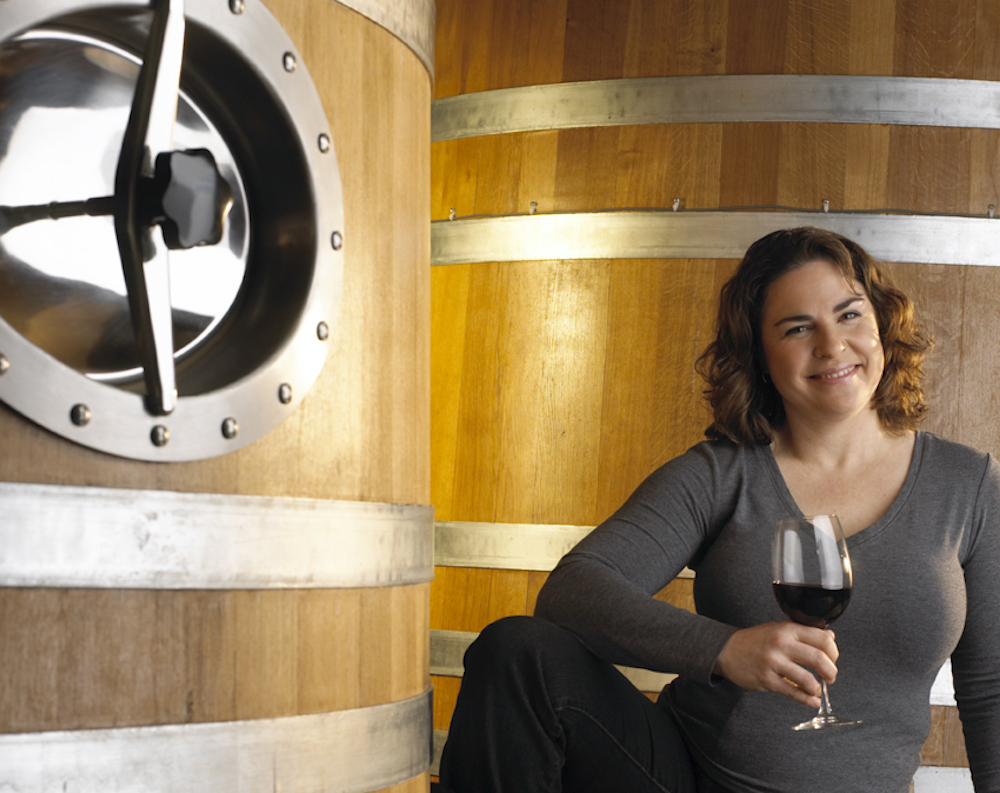
At Niagara’s organic biodynamic winery, Sperling, above, has applied a vineyard-centric ideology to every facet of the winery’s winemaking philosophy. And that extends to both of her other projects, Sperling Vineyards and Versado.
With her roots deeply embedded in the terroir of winegrowing, Sperling learned early on to recognize, develop and appreciate the fine balance within the characteristics of the fruit and its effects on wine. She completed her food sciences degree at UBC and has continued her path of learning and exploration since she entered the wine industry full-time in 1984.
Sperling’s talents were on full display in the early ’90s when her 1992 Merlot won medals in every competition it was entered in, taking the gold medal at the International Wine and Spirits Competition in the UK and platinum at the Okanagan Wine Festival. Her particular pride in this success is that Merlot has since become a more widely planted grape variety in the Okanagan Valley.
In 2004, Sperling was awarded with Winemaker of the Year at the Ontario Wine Awards.
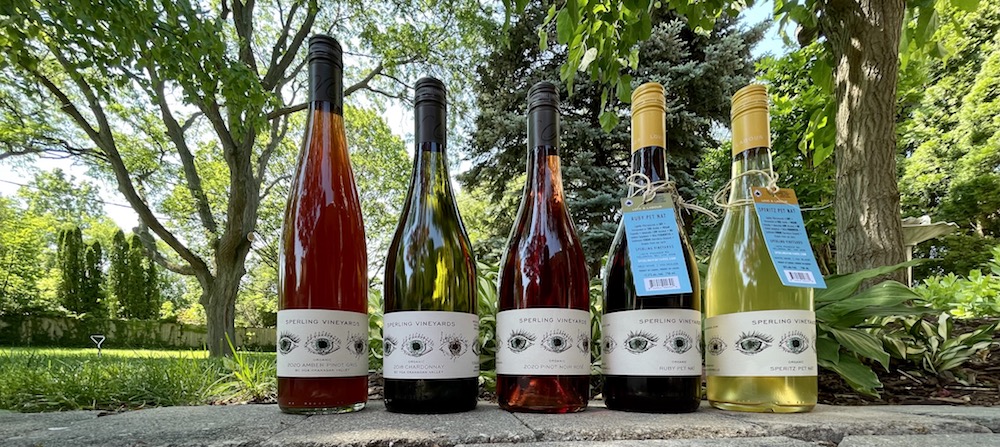
Extensive study and practical research led to her becoming Canada’s foremost authority on organic and biodynamic viticulture. As a leading practitioner, she implemented organic certification on several Canadian vineyards, and set up Southbrook Vineyard to biodynamic viticulture and winemaking (from 2006, with Organic and Demeter certification since 2008).
Sperling’s winemaking expertise is not solely vineyard-based, however, it moves across the crush pad and deep into the cellar. A long-time member of the VQA Technical Committees in, first, B.C. and then Ontario, she has also consulted internationally with innovative French winemaking consultation firms, and has run at the forefront of post-modernist winemaking thought.
It is no surprise that Sperling has been a leader in Canada for a more natural style of winemaking from the core wines to the current crop of orange, pét-nats and low to zero additives (including sulphur) at the wineries where she currently hangs her hat — Sperling, Southbrook and Versado.
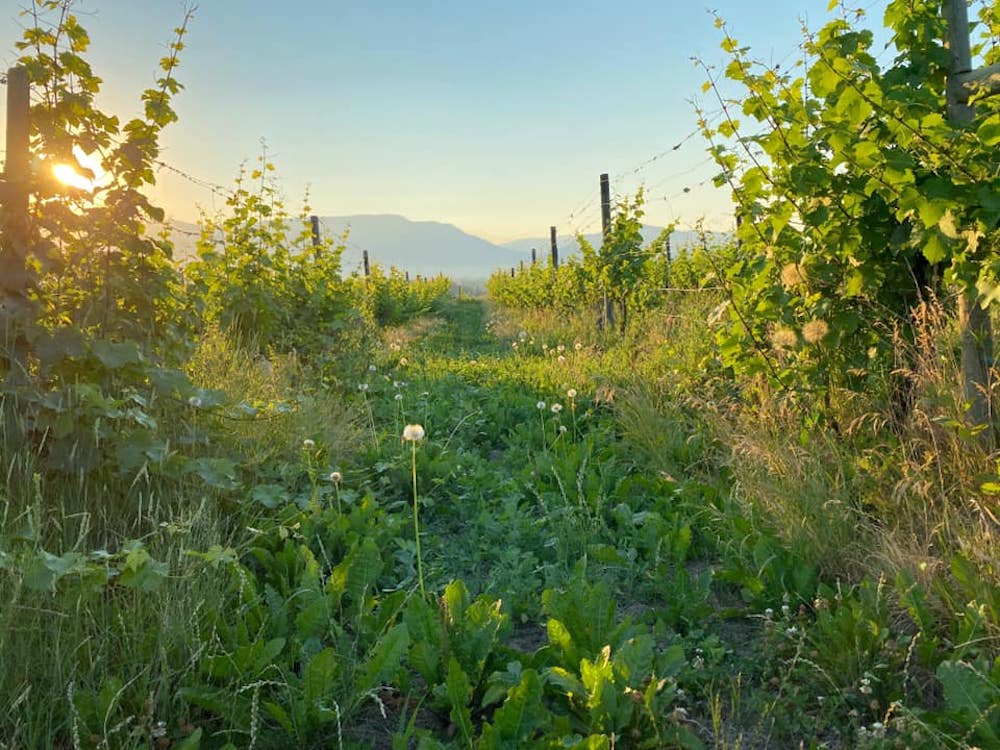
Her Vision Series wines at Sperling Vineyards, above, is one of the most complete in Canada for the burgeoning experimental styles that consumers just can’t seem to get enough of.
These are wines made from younger vines, experimental styles and small lots with an individual and vintage expression. The added expression is derived from fermentation techniques, cellar influences such as barrels (new wood, different sized barrels, etc.), wild ferments, classic method sparkling and extended lees contact.
We taste and review the new Vision Series wines below, but first, a bit of B.C. wine news.
Burrowing Owl Vineyards
acquires Wild Goose Vineyards
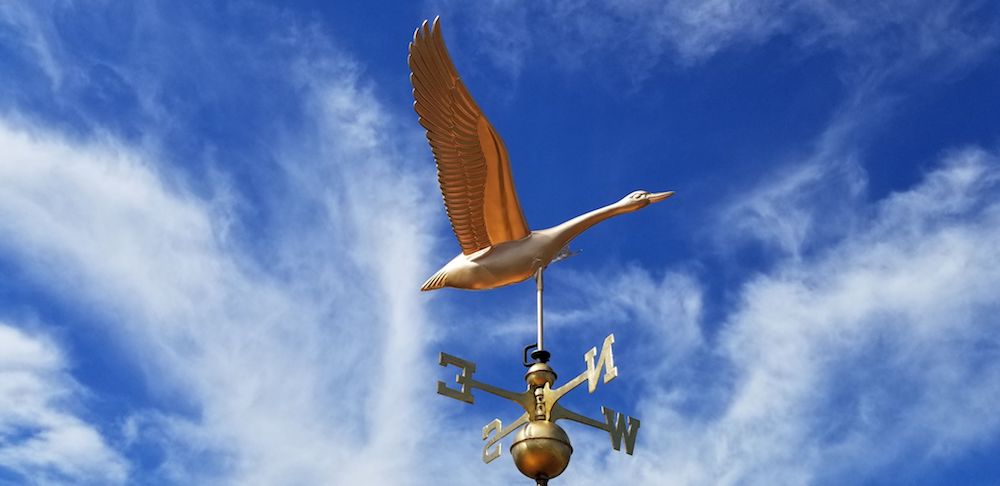
The Wyse family of Burrowing Owl Vineyards has acquired the popular Wild Goose Vineyards and Winery located in Okanagan Falls.
“We are very excited about this acquisition,” waid Chris Wyse, president of Burrowing Owl and son of Burrowing Owl’s founder and proprietor, Jim Wyse. “We have been looking at various opportunities to grow our business over the past few years, and we feel that Wild Goose is a perfect fit for us. We appreciate the family heritage and history of Wild Goose, as well as the excellent quality of the vineyards and products, and the strength of reputation and brand that the Kruger family has built since 1984.”
The Wyse family said they are looking forward to the Kruger family’s continued involvement in the business, with oversight from Wild Goose founder, Adolf Kruger’s youngest son, Roland Kruger, and Roland’s nephews Nikolas Kruger (winemaker) and Alex Kruger (vineyard supervisor). The Wyse family also values the commitment to ongoing consulting support from Nikolas’s and Alex’s father, and longtime Wild Goose Winemaker, Hagen Kruger, as they continue to craft the respected Pacific Northwest style whites, and cool climate reds, that Wild Goose fans have to come to know and love since the winery’s inception.
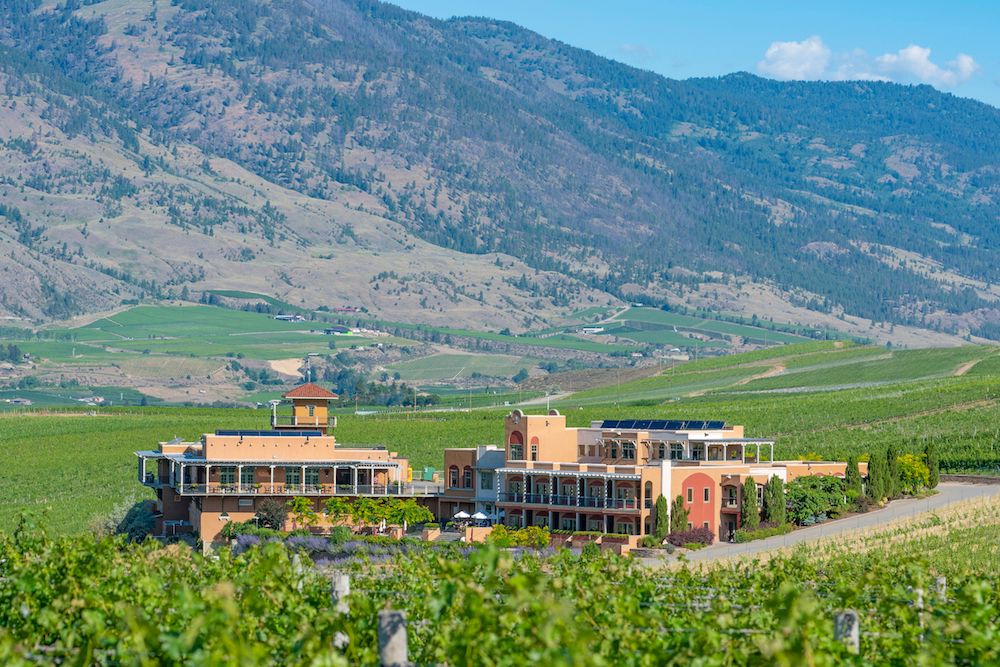
The family-run Burrowing Owl Estate Winery will merge knowledge and experience in producing ultra-premium wines with the Kruger’s insights and expertise to provide a solid platform for Wild Goose products to continue for years to come. “Our team of long-time staff are really looking forward to becoming part of the larger Burrowing Owl team,” Roland Kruger said. “They can’t wait to get started working collaboratively in the vineyard, in the cellars, and in hospitality. It’s been great to see the team’s reaction to, and excitement for, this transaction.”
Beyond each family’s commitment to continuing their legacy, the Wyse family is looking forward to providing a wider range of products and more options within its portfolio: from Wild Goose wines primarily originating from vineyards North of MacIntyre Bluff, to the textured and oak-influenced wines from Burrowing Owl which primarily originate from vineyards South of Oliver. “It’s really a perfect marriage for B.C. wine consumers,” Chris Wyse commented.
Sperling Vineyards
Vision Series wines
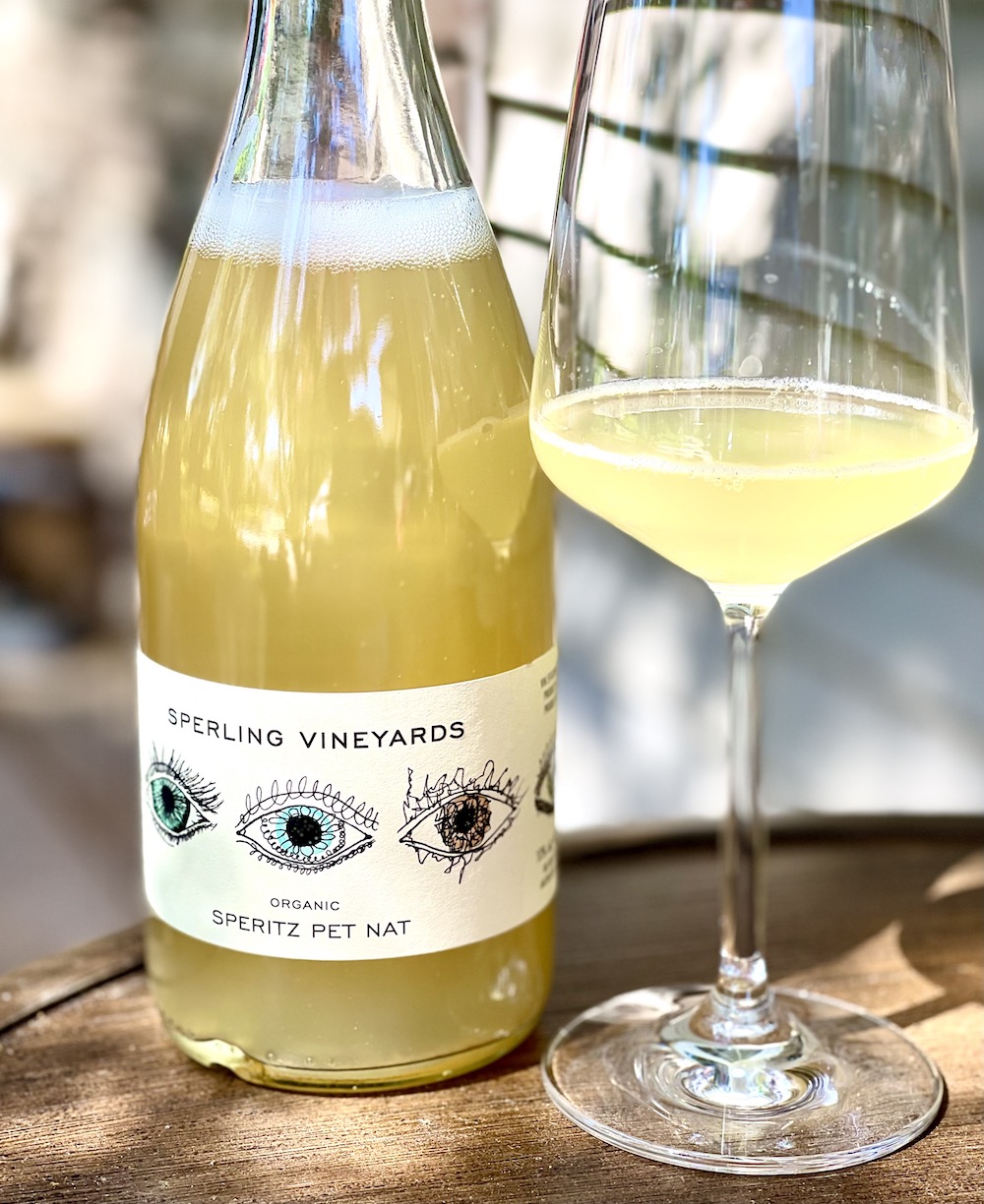
Sperling Organic Speritz Pét Nat ($30, 90 points) — The varieties in the Speritz include estate Perle of Csaba, Chardonnay and Bacchus. This is a natural wine, vegan friendly, wild fermented in the bottle, with no additives and does throw some sediment in the bottle. It has a hazy golden glow in the glass (depending if you shook the bottle prior to opening) and shows a pure fruit-driven nose of peach, citrus pulp, honeysuckle and nectarine. It has decent effervescence on the palate with bright and juicy orchard fruits, savoury notes, citrus rind and a perky finish.
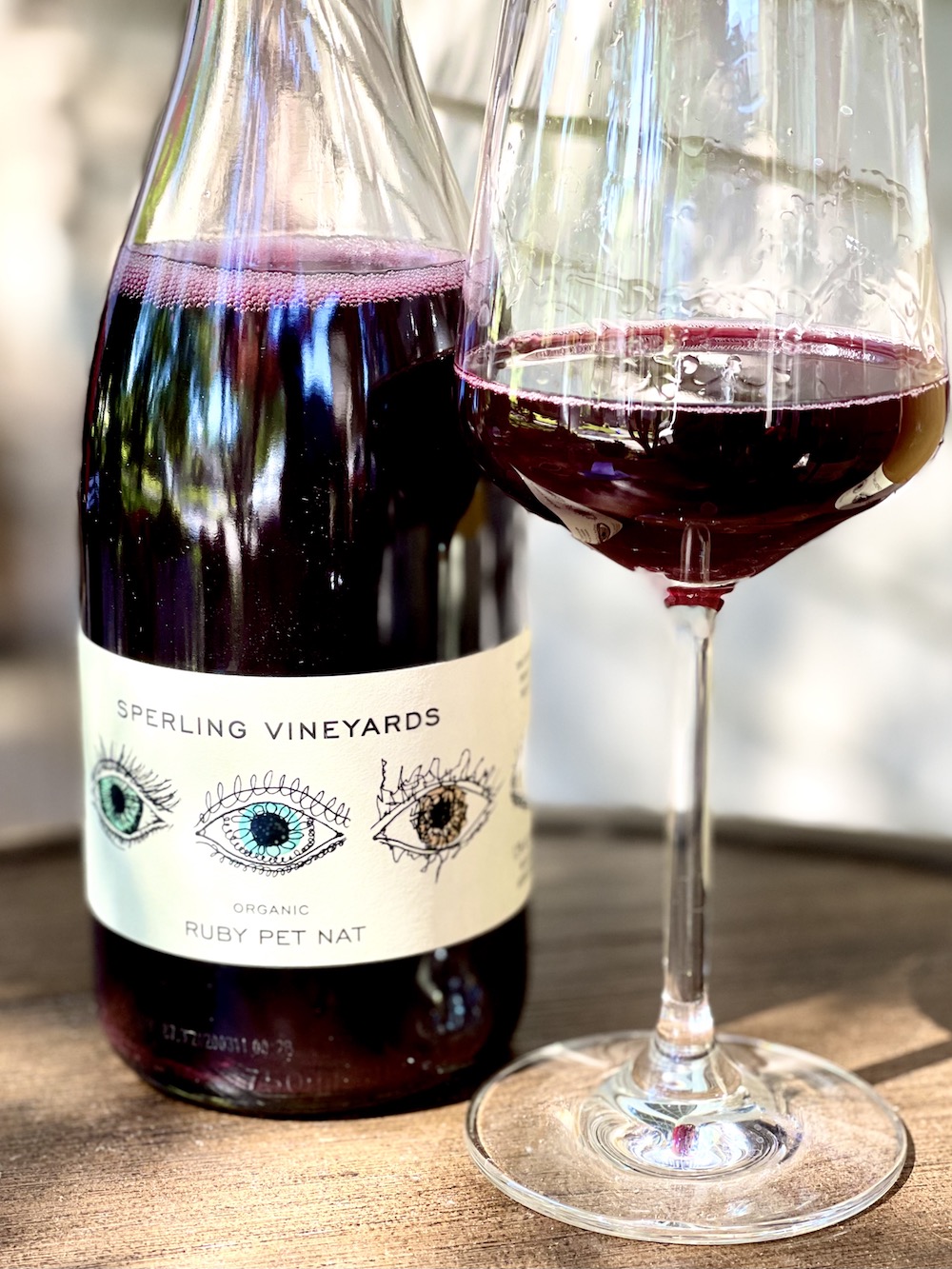
Sperling Organic Ruby Pét Nat ($30, 88 points) — This is a blend of Marechal Foch (85%) and Pinot Noir (15%). The Foch was whole cluster fermented for five days then pressed and blended into the Pinot Noir parcel. Like the Speritz above, this, too, is a natural wine with zero additives and will show sediment in the bottle. The colour is deep purple in the glass with some haze and shows a soft effervescence. It’s a bit more reductive than the Speritz with dark cherries, forest berries, wild blueberries and cassis. The palate reveals earthy-reductive notes, savoury red and dark berries, subtle pepper and herbs and a mellow finish. This is a funky rendition of the pét-nat style at Sperling.
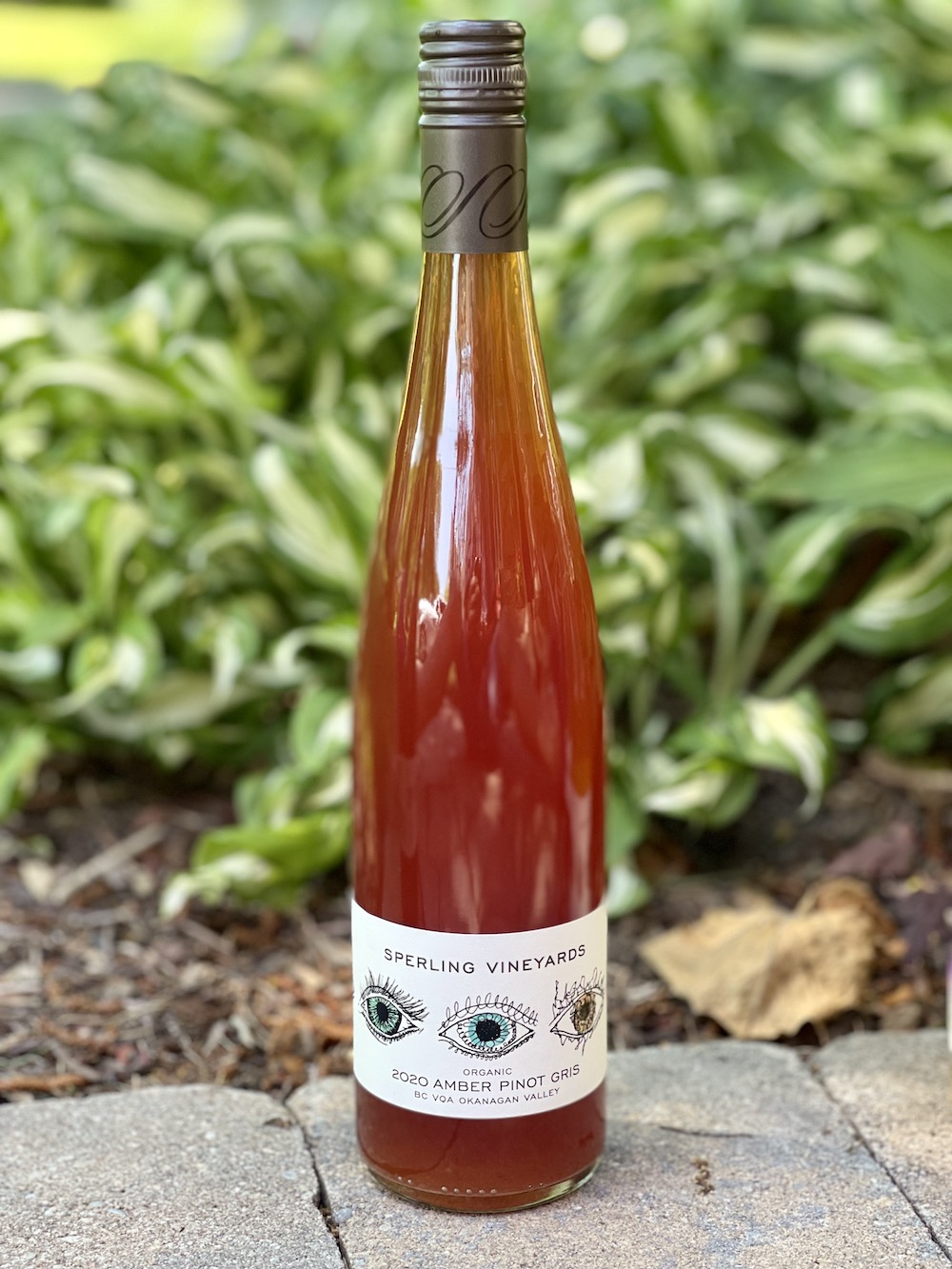
Sperling Vision Series Amber Pinot Gris 2020 (sold out) — This skin-fermented and natural “orange” wine sold out before we even received the wine for review, but we feel this wine is a benchmark for the style and offer up this review. Sperling has always had a holistic approach to approach to winemaking, using native and organic yeasts, but this time, she dug deeper into a grape that everyone making wine or drinking it in the Okanagan thinks they know. “We asked, what happens when you take not only 65% of the Pinot Gris grape and ferment it, but 95-100%,” she said. “So we included whole clusters, and stemmed grapes in a ferment of wild yeast and wild malolactic, taking sugars and malic acid to complete dryness. And then what if you press and settle rather than fine or filter – and leave the natural structural elements of the grape intact and not ameliorate with additives such as sulphites? The result is a whole expression of Pinot Gris vines that have adapted themselves over 20 years to the site. It is not an expression of vessel, but a savory expression of the complete grape. It may be an umami expression through the grape, but there’s no denying that this wine loves food.” Quite the hazy amber colour in the glass for a Pinot Gris with a funky nose of melon, mature peach, black tea, jasmine, orange peel and tart citrus notes. Tannins are evident on the palate and the acids are exuberant with a range of tart berries, funk, citrus peel, savoury notes and an electric finish. This wine is not for everyone, but if you are a fan of funky and natural skin-fermented white wines, this one pushes the outer limits of where the style can go.
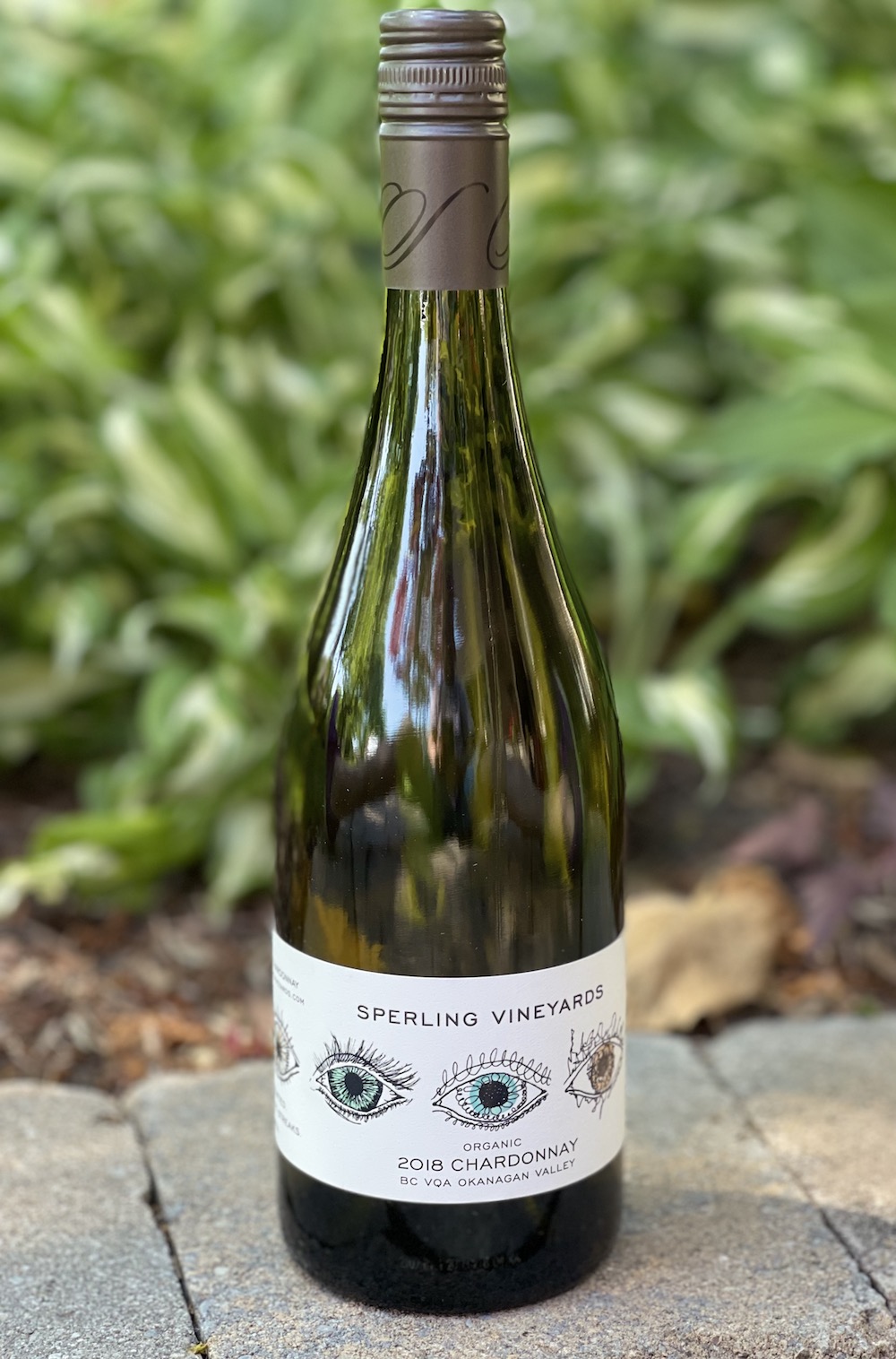
Sperling Vision Series Chardonnay 2018 ($35, 92 points) — Select blocks of estate Chardonnay are hand harvested, cluster sorted then gently whole cluster pressed. Settled juice is transferred to oak puncheons to wild ferment and select barrels are blended after 12 months of aging on the lees. There is lovely freshness and salinity on the nose with lifted notes of pear, crushed seashells, green apple and lemon drop. There’s a creamy texture on the palate with leesy notes, ripe pear, apple, fresh citrus and a bright, finessed finish. Terrific Chardonnay.
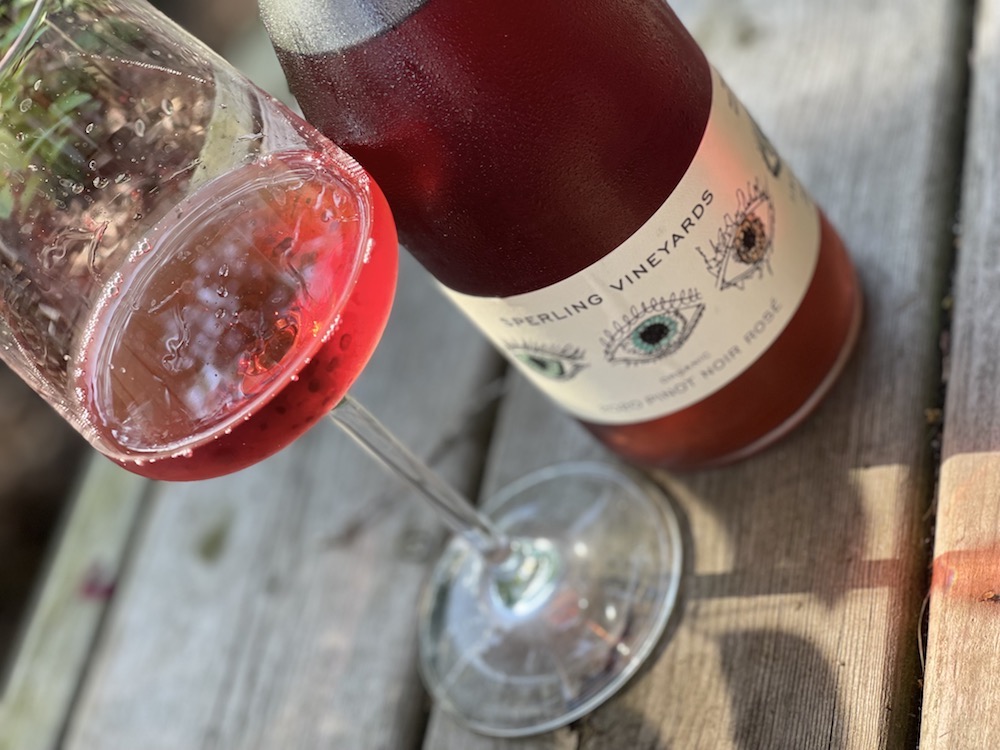
Sperling Vision Series Pinot Noir Rosé 2020 ($25, 90 points) — Directly pressed estate Pinot Noir clone 777 grapes were fermented cool by wild ferment in stainless steel barrels. The wine was aged on its lees for four months. It shows a bright candy apple red colour in the glass with a nose of fresh strawberries, raspberry bush, cherry and cotton candy. It’s bright, cheerful and bone-dry on the palate with electric acidity keeping the basket of red berries fresh and lively through the finish.
New wines from Township 7
Vineyards & Winery
Provenance Series
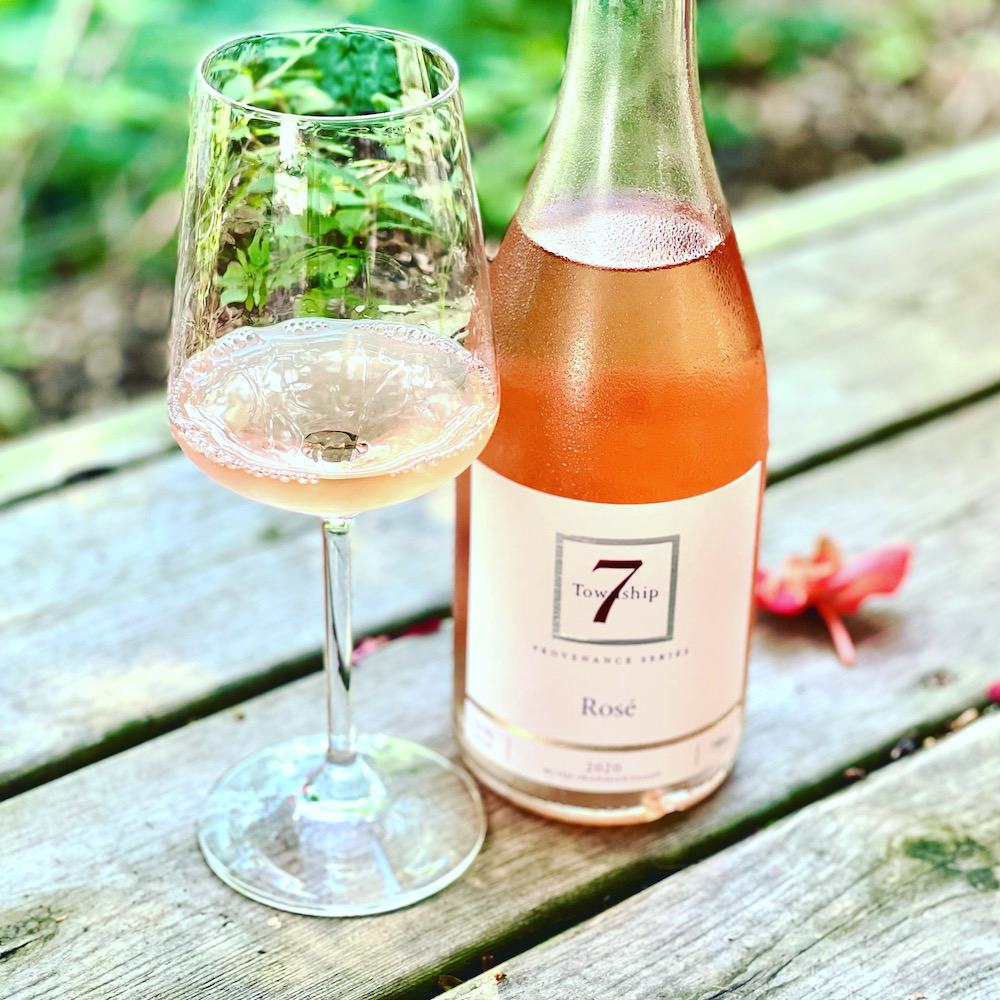
Township 7 Rosé 2020 ($25, 90 points) — The blend for this tasty rosé is comprised of Merlot, Cabernet Franc, Cabernet Sauvignon, Malbec and Petit Verdot. It shows a pale salmon colour in the glass and an attractive nose of wild raspberries, rhubarb, strawberries and a subtle floral note. It’s fresh, dry and balanced on the palate with all manner of red berries leading to a clean, crisp finish. Excellent rosé for this hot, hot, hot summer.
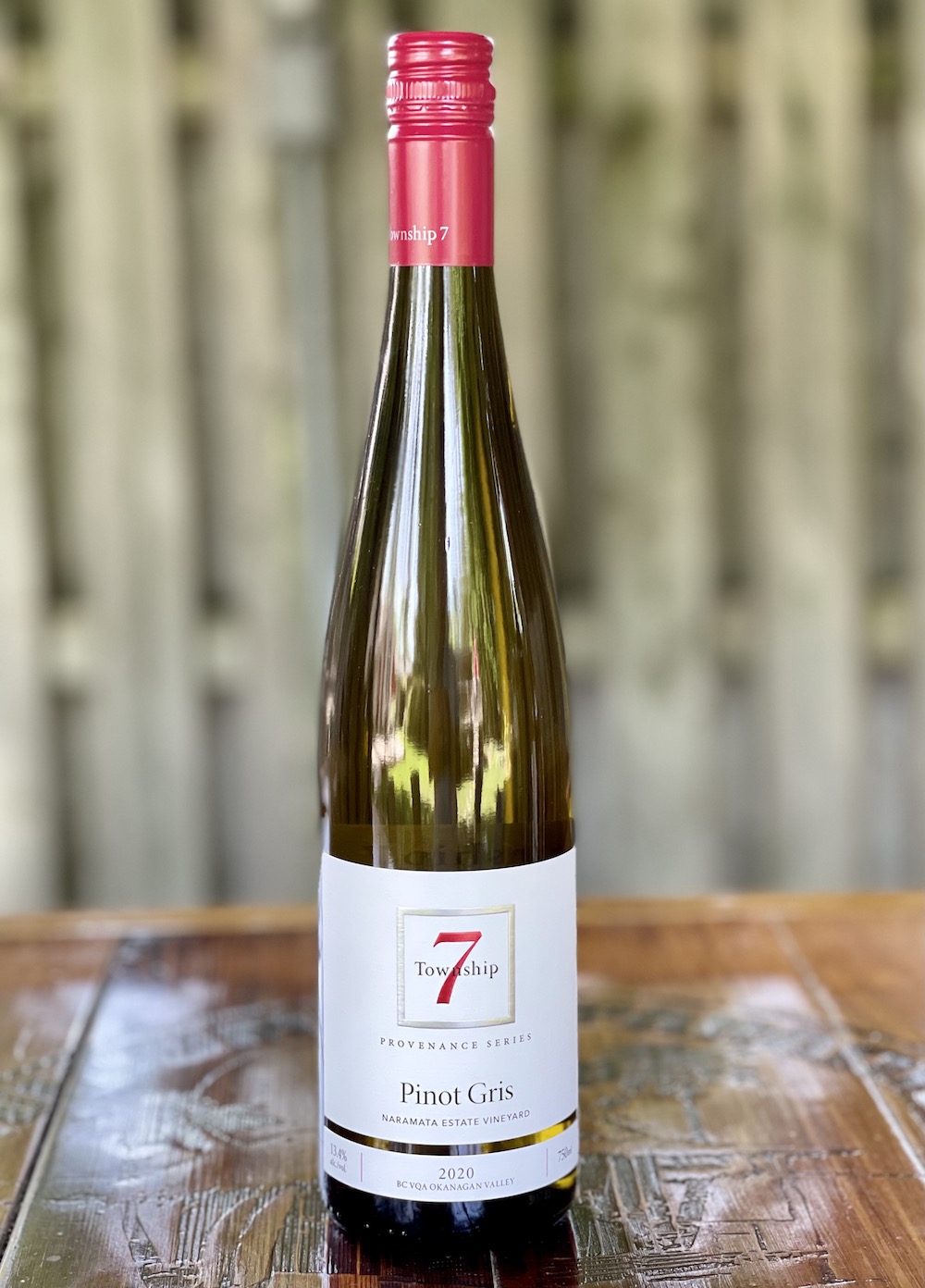
Township 7 Pinot Gris 2020 ($21, 88 points) — The fruit comes from the estate’s Naramata Bench vineyard and sees a bit of aging in neutral oak barrels. The nose displays peach, nectarine, orange zest and honeysuckle. It’s a touch off-dry on the palate with ripe peach, melon, honey and a rounded texture through the minerally-driven finish.
Benchmark Series
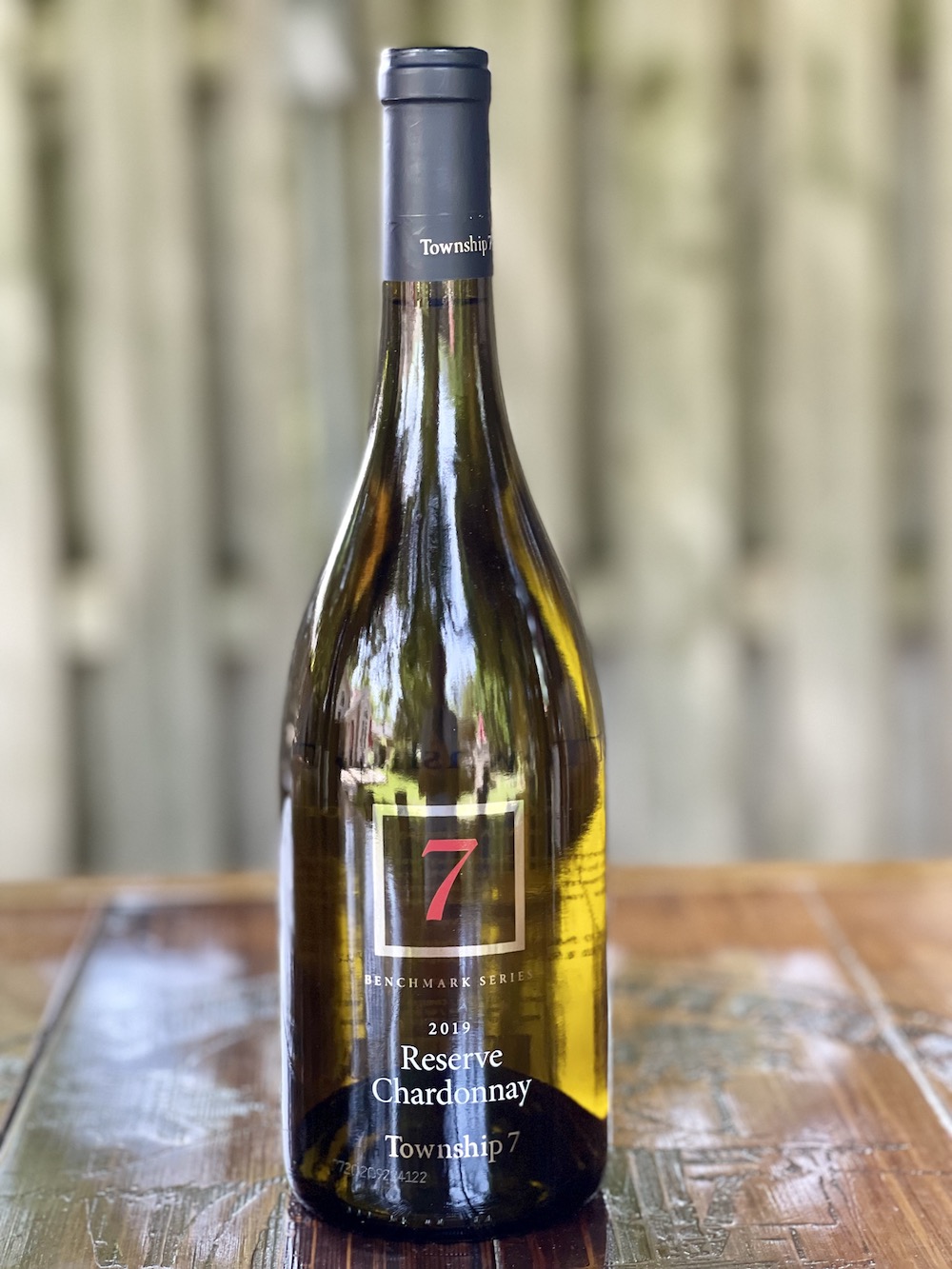
Township 7 Reserve Chardonnay 2019 ($29, 92 points) — The grapes for this wild fermented Chardonnay were sourced from vineyards in Oliver and aged in 100% oak barrels, 20% of which were new oak, for 12 months. It has a perfumed and creamy nose with fresh pear, green apple, pineapple, toasted vanilla and elegant spice notes. It’s lovely on the palate with a creamy texture, ripe orchard fruits, apricot, grilled pineapple, vanilla and spice that’s nicely balanced and fresh through a lively finish.
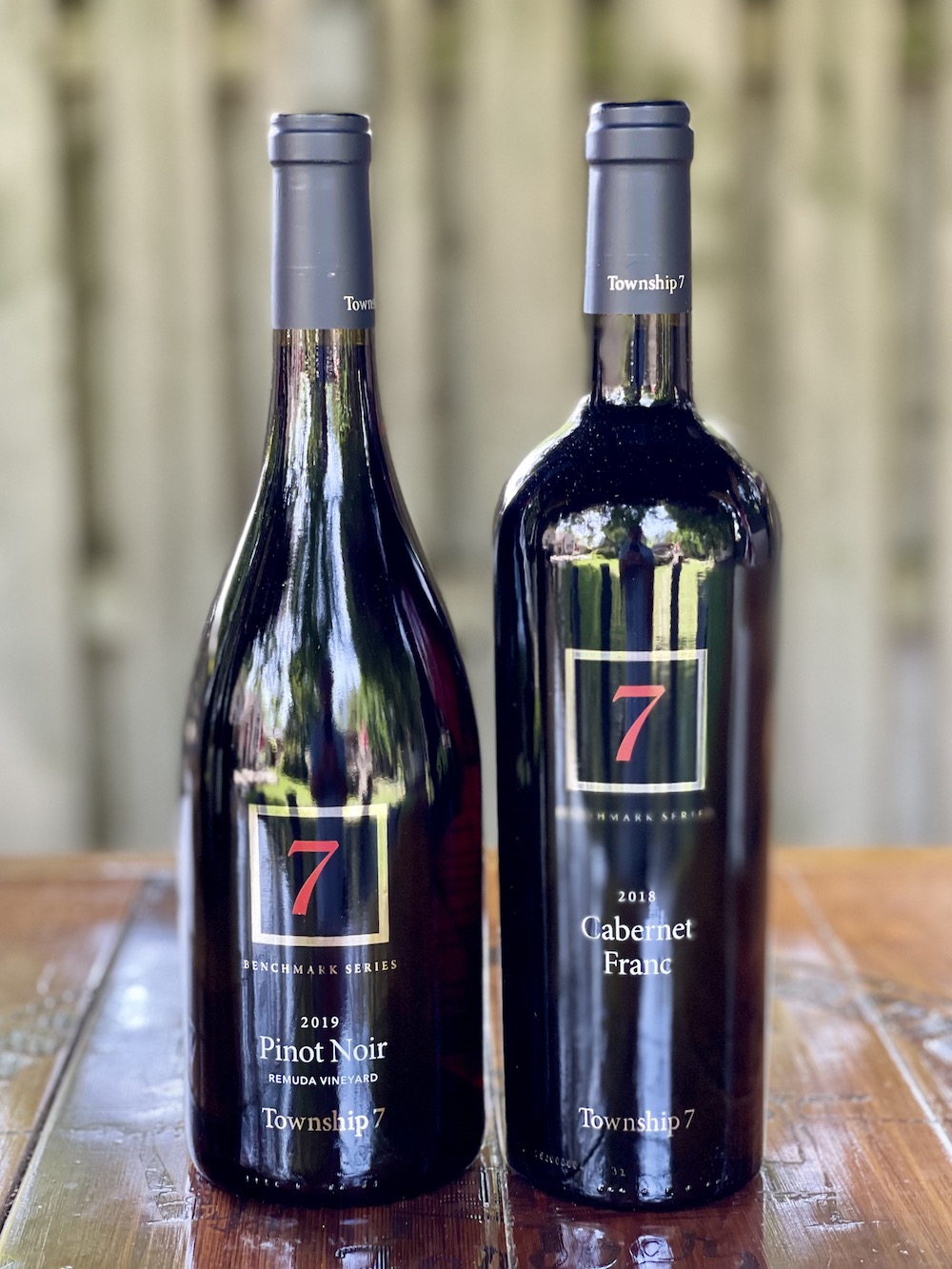
Township 7 Pinot Noir 2019 ($37, 92 points) — The pinot was sourced from a vineyard in Okanagan Falls aged in mostly neutral French oak barrels for 12 months. It shows dark cherries, raspberries, cranberries, a touch of cassis, savoury minerality, earth and spice. It’s silky smooth on the palate with a generous array of red berries, supporting earth and spice, supple tannins and a lifted finish. Can cellar for 5+ years.
Township 7 Cabernet Franc 2018 ($28, 91 points) — The Cabernet Franc was primarily sourced from Osoyoos with a little bit coming from Oliver and a small quantity of estate Merlot was blended in. It was aged in French and American oak (20% new) for 24 months. The nose shows brambly raspberries, forest berries, cocoa, earth, savoury herbs, eucalyptus and spice. It has beautiful texture on the palate with dense red berries, touch of cassis, minty herbs, spice rack, relatively smooth tannins and a bright finish.
New wines from Gold Hill Winery
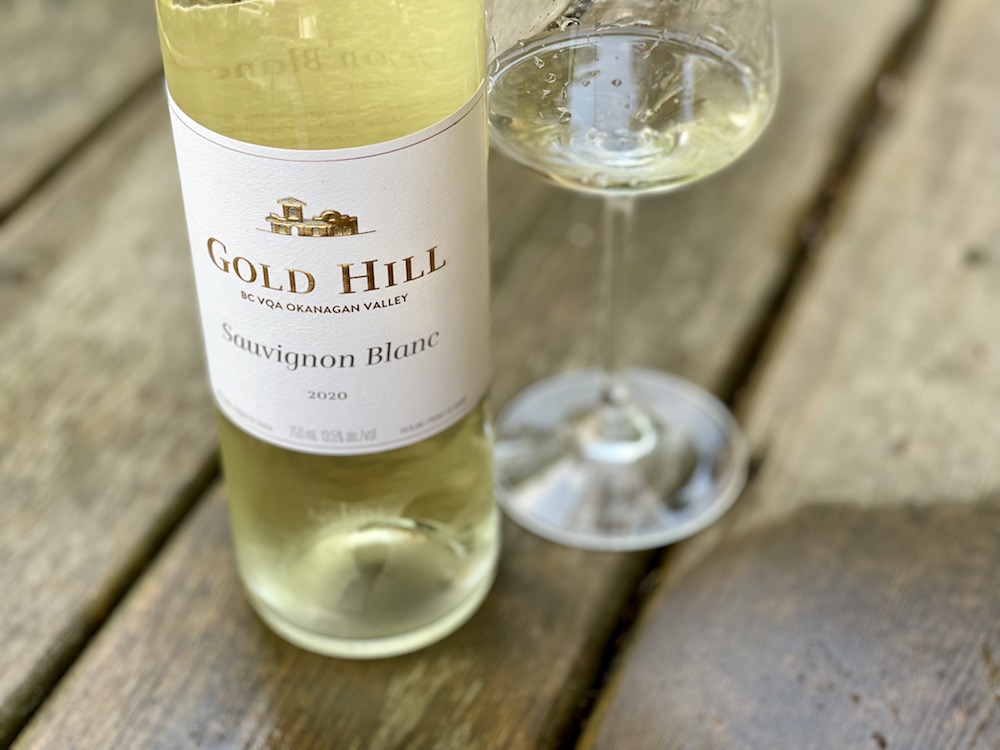
Gold Hill Sauvignon Blanc 2020 ($30, 90 points) — This delightful savvy, the first from Gold Hill, is made in a fresh, lively style with grapefruit, lime zest, gooseberries, herbs, pear and subtle grassy notes. It’s quite juicy on the palate with layers of pear, grapefruit, passion fruit and citrus with a refreshing finish.
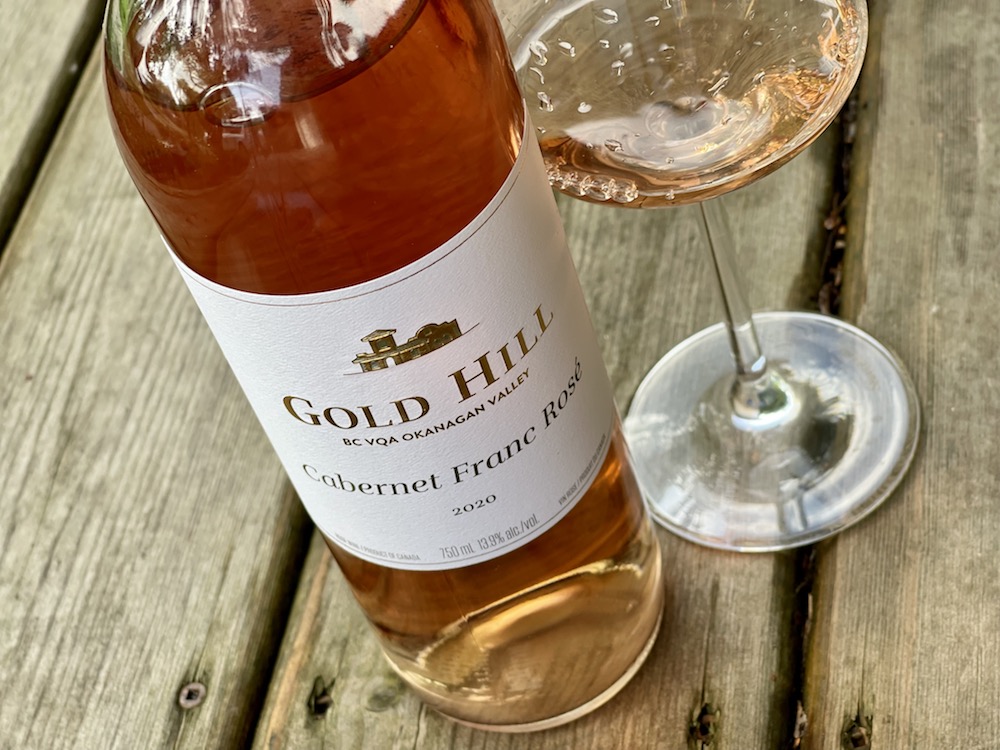
Gold Hill Cabernet Franc Rosé 2020 ($26, 89 points) — This rosé is made from 100% Cabernet Franc grapes in the traditional saignée method. It shows a pale salmon colour in the glass with an attractive nose of ripe cherries, strawberries, rhubarb and herbs. There’s a touch of sweetness on the palate with ripe red fruits, herbs and balancing acidity on a vibrant finish.
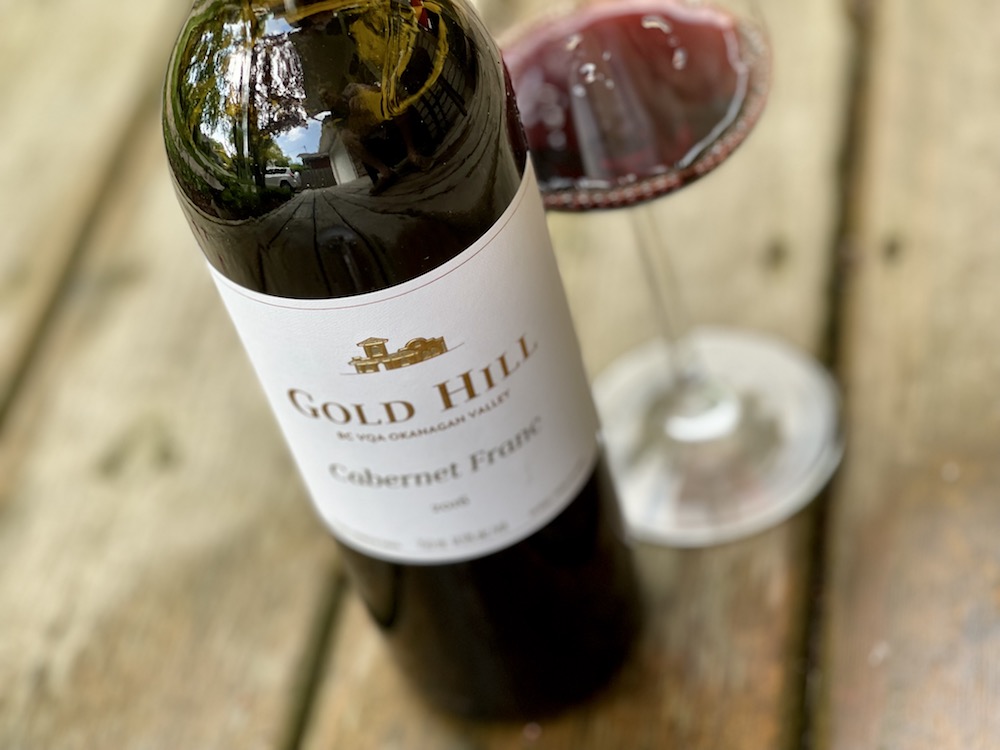
Gold Hill Cabernet Franc 2016 ($41, 92 points) — This is a nicely aged Cabernet Franc that saw 18 months in oak before release. It has quite a spicy/smoky nose of cassis, Okanagan herbs, cocoa, vanilla toast, dark cherries and anise. It has perfectly integrated tannins on the palate with cassis, blackberries, savoury red berries, dried herbs, cedar plank, rich spice notes and a lifted, long finish. Quite attractive right now, but can age 5+ years.


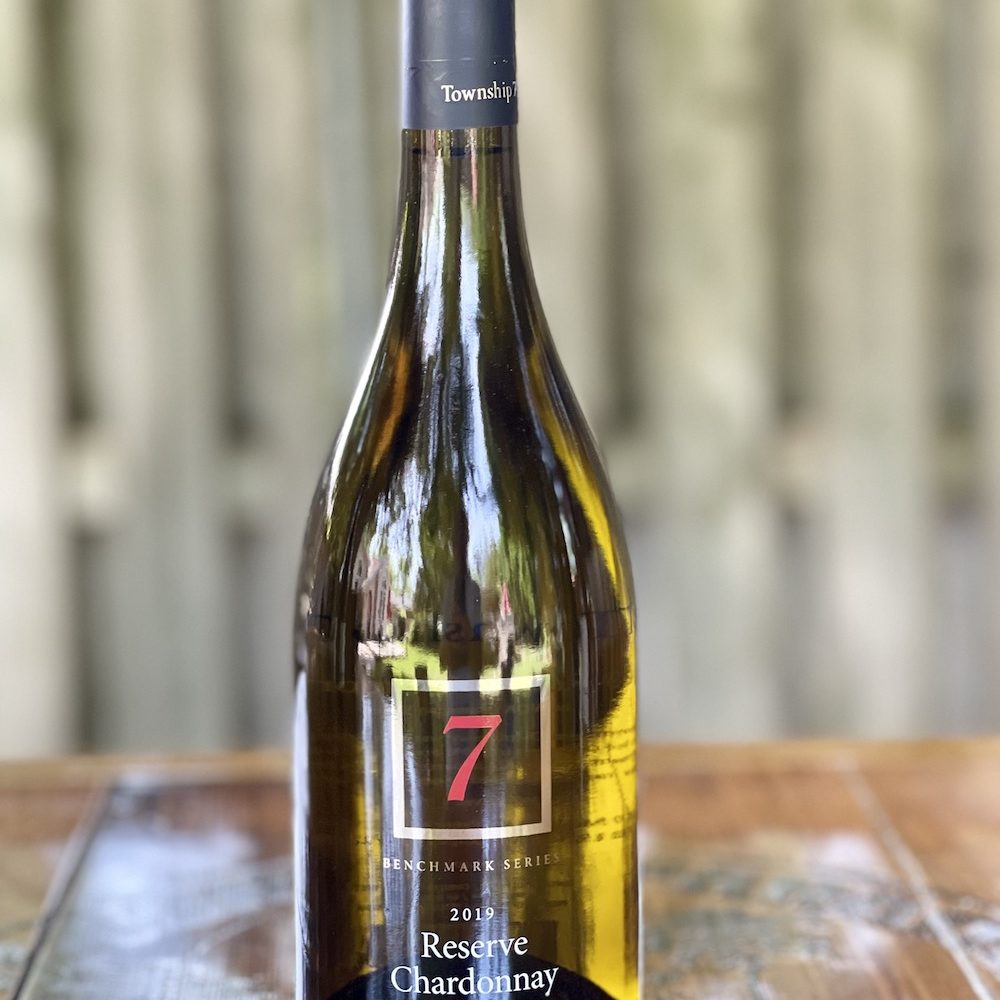



Comment here